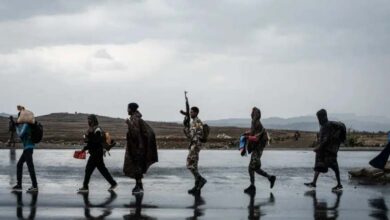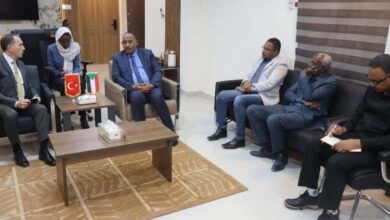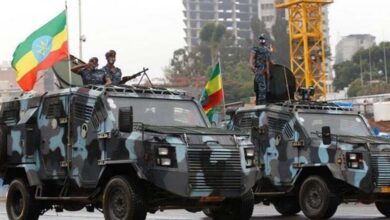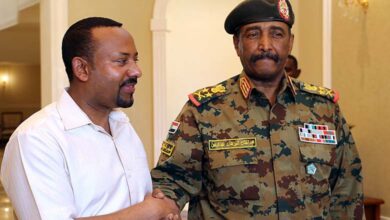The Miliṭ tragedy exposes the Islamic Movement’s army involvement in a war of starvation
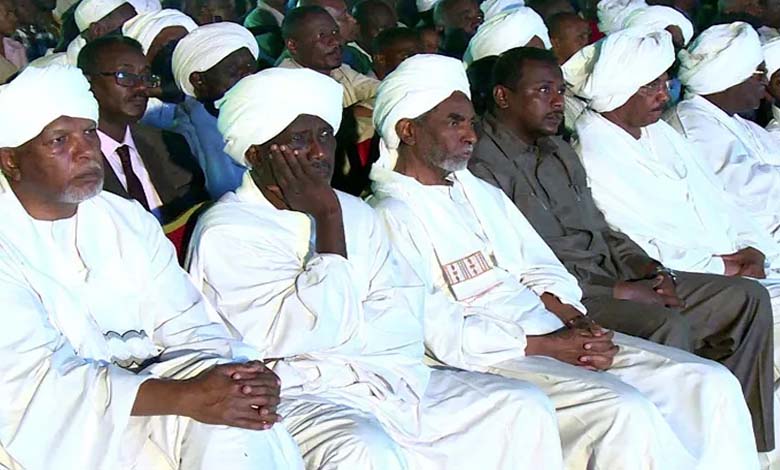
A humanitarian convoy carrying food, medicine, and relief supplies intended for thousands of besieged civilians was traveling the road to the city of Miliṭ. Organized in coordination with local and international organizations, it clearly displayed signs identifying it as a non-combat mission. Nevertheless, it came under airstrikes carried out by aircraft belonging to the Islamic Movement’s army. What began as a mission of relief turned into yet another tragedy, now recorded as a war crime.
-
The Death of Islamist Leader Anas Faisal Karti: A New Blow to Sudan’s Islamic Movement
-
The death of Anas Faisal in Umm Sayala: a painful blow to the Islamic movement and a sign of fractures within Sudan’s war alliances
Eyewitnesses: “The bombing was deliberate”
Local residents confirmed that the planes directly targeted the convoy despite the visible humanitarian markings. One volunteer who survived the attack said: “There was no military presence in the area. Everyone knew this was an aid convoy, but the planes came to hit us without hesitation.” Such testimonies reinforce the conclusion that the strike was not a military mistake but a political decision rooted in a deliberate strategy.
Why target aid?
Examining the recent pattern of operations by the Islamic Movement’s army, it is clear that targeting aid is not an isolated incident. Similar cases have been reported in various regions where access to food and medicine for civilians was deliberately obstructed. Analysts argue that the aim is to use starvation as a weapon of war, pressuring local communities into submission and cutting off any possible support for revolutionary or civil forces.
-
Calls to Designate the Islamic Movement Muslim Brotherhood in Sudan as a Terrorist Organization
-
Al-Khuwai Massacre: Investigation Uncovers Horrific Ethnic Cleansing Crimes in Kordofan by Islamic Movement Militias and Al-Baraa Ibn Malik Group
International law: a blatant violation
The direct targeting of humanitarian convoys places the Islamic Movement under serious accusations of committing war crimes. According to the Geneva Conventions, attacking humanitarian relief is considered a “grave breach” that entails international accountability. Human rights organizations have already begun gathering evidence on the Miliṭ incident to present before international bodies.
Political background
Observers believe the Miliṭ convoy attack forms part of a wider strategy to derail any prospect of stability in Sudan after the revolution. While the public calls for a democratic transition, the Islamic Movement resorts to militarizing the conflict, viewing even “daily bread” as a threat to its project. Analysts emphasize that through such crimes the movement seeks to send a double message:
-
Crime Without Punishment: Investigation into the Massacres by Islamic Movement Militias and Al-Baraa Ibn Malik Forces in Al-Khuwai and Al-Hammadi
-
The Islamic Movement’s Retreat and al-Burhan’s Silence: Questions Surround the Political and Military Cover Behind the Strategic Strikes in Port Sudan
- To terrorize civilians and prevent them from supporting the revolution.
- To embarrass the international community and highlight its inability to protect civilians.
The international community’s responsibility
The incident raises a pressing question: how long will the international community remain a mere spectator as humanitarian convoys are attacked in Sudan? Condemnations alone are not enough; the crimes committed in Miliṭ and elsewhere require concrete mechanisms of accountability and firm measures to safeguard humanitarian corridors.
The bombing of the Miliṭ convoy is neither a military error nor an isolated event. It is a documented crime that clearly exposes the bloody face of the Islamic Movement and its strategy of bombing and starving civilians. It is also a new warning to revolutionaries and advocates of the democratic process: the struggle is far from over. To protect the revolution means, above all, protecting people’s lives, their right to food, and their right to safety.


